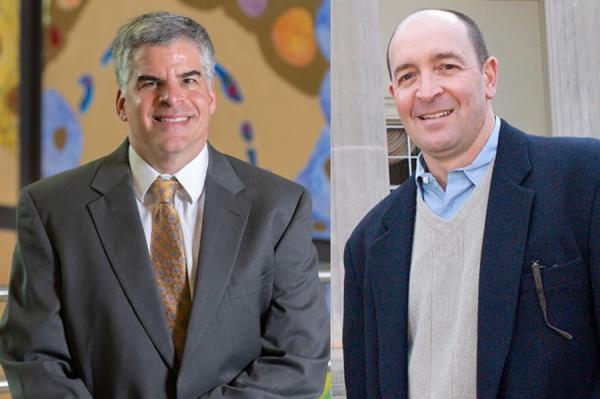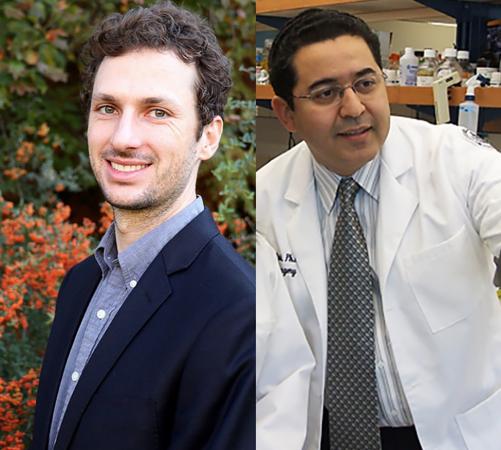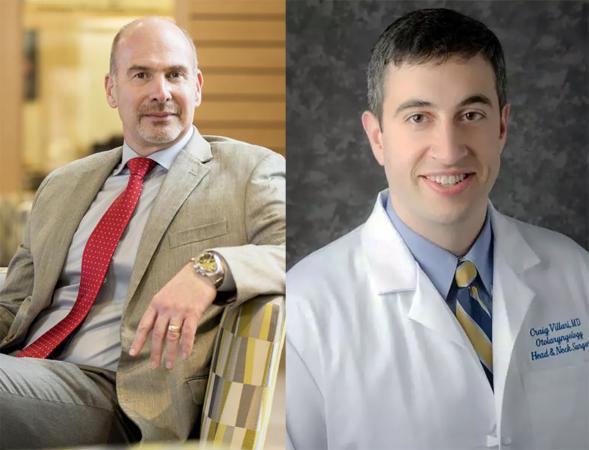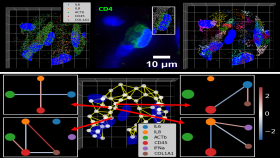Congratulations to the interdisciplinary teams awarded seed grants by the Regenerative Engineering and Medicine (REM) research center. REM is a collaborative partnership building on the success of Emory University and Georgia Institute of Technology in cell therapy clinical trials and tissue engineering technologies, as well as stem cell research and large animal applications at the University of Georgia. REM seed grants are supported by the three partner universities in conjunction with the Georgia Research Alliance.
2018 REM Seed Grant Awardees:
Project Title: “Bactericidal Hydrogels to Treat Bone Infection in a Large Animal Fracture Model"
Principal Investigators: Andrés García (Georgia Tech) and John Peroni (University of Georgia)
Synopsis: The objective of this project is to examine the ability of synthetic materials (hydrogels) that deliver the potent bactericidal enzyme lysostaphin to eradicate bacteria infection in a sheep model of bone defect infection. Our hypothesis is that hydrogels with controlled delivery of lysostaphin will eliminate Staphylococcal infections thus preserving defect fixation. The establishment of these approaches using local antimicrobial engineering expertise developed at GT with the large animal modeling expertise available at UGA will generate critical data to establish the translational potential of this anti-infective material.
Project Title: “Comparing the effects of MSCs derived from pluripotent stem cells originating from normal and diseased joint chondrocytes on the progression of osteoarthritis"
Principal Investigators: Luke Mortensen (University of Georgia) and Hicham Drissi (Emory University)
Synopsis: Osteoarthritis is a degenerative disease of the cartilage with a significant societal burden both economically and emotionally. To date there is no cure for osteoarthritis. This proposal will specifically focus on post-traumatic osteoarthritis. Because patient specific induced pluripotent stem cells (iPSCs) are increasingly considered as a source of stem cells for cartilage regeneration, a question remains as to whether the cell source and disease state of IPSCs could influence their regenerative capacity. Specifically, epigenetic changes that occur during OA progression and perhaps are only partially reversed during cell reprogramming can dramatically impact the regenerative capacity of these cells. The project aims to: 1) Evaluate the epigenetic memory of inflammation in chondrogenic iPS-derived cells from healthy and arthritic clinical patients & 2) Trace the survival and differentiation of healthy and arthritic chondrogenic iPS-derived cells in vivo using multiphoton intravital imaging in a medial meniscus destabilization model. This will be a first step in elucidating some of the critical pathways required for iPSC-derived regenerative capacity for tissue cartilage regeneration.
Project Title: “Polycaprolactone Scaffold And Forearm Free Tissue Viability In Yucutan Pigs"
Principal Investigators: Scott Hollister (Georgia Tech) and Craig Villari (Emory University)
Synopsis: This REM seed grant proposes to develop and test a tracheal scaffold as the basis for a tracheal free flap in a Yucatan swine model. This tracheal flap is actually being developed for a current patient of Dr. Villari who has a long segmental tracheal defect. The scaffold design will be generated directly from this patient’s image data. The resulting scaffold will be 3D printed for testing. The goals of this project will be: 1) to determine the mechanical viability via finite element simulation and mechanical testing for a range of porous patient specific scaffold designs in comparison to published human tracheal mechanical properties and tested swine tracheal mechanical properties and 2) to test the four tracheal scaffolds in a Yucatan free tissue flaps with and without growth factors to enable vascularity. The resulting flaps will be mechanically tested, scanned using micro-computed tomography in the animal, and sectioned for histology to determine mechanical properties, resulting geometry and tissue ingrowth.
Media Contact
Keywords
Latest BME News
Commercialization program in Coulter BME announces project teams who will receive support to get their research to market.
Courses in the Wallace H. Coulter Department of Biomedical Engineering are being reformatted to incorporate AI and machine learning so students are prepared for a data-driven biotech sector.
Influenced by her mother's journey in engineering, Sriya Surapaneni hopes to inspire other young women in the field.
Coulter BME Professor Earns Tenure, Eyes Future of Innovation in Health and Medicine
The grant will fund the development of cutting-edge technology that could detect colorectal cancer through a simple breath test
The surgical support device landed Coulter BME its 4th consecutive win for the College of Engineering competition.
New research from Georgia Tech helps doctors predict how therapies will interact with a child's immune system, potentially improving outcomes and reducing risks.










